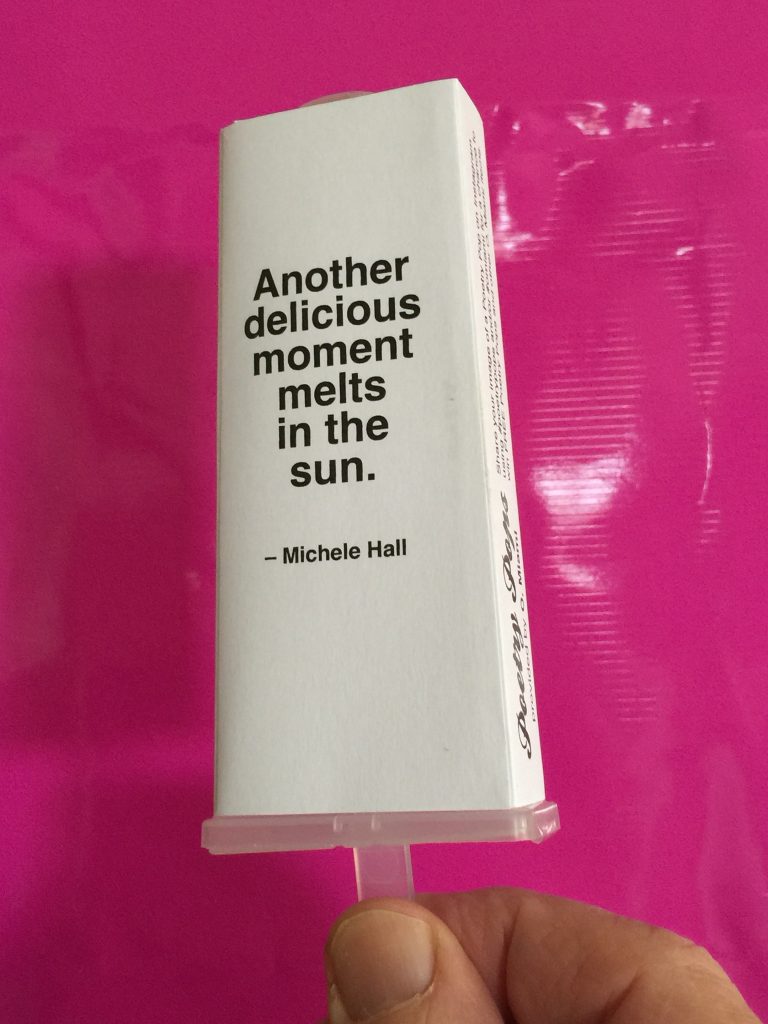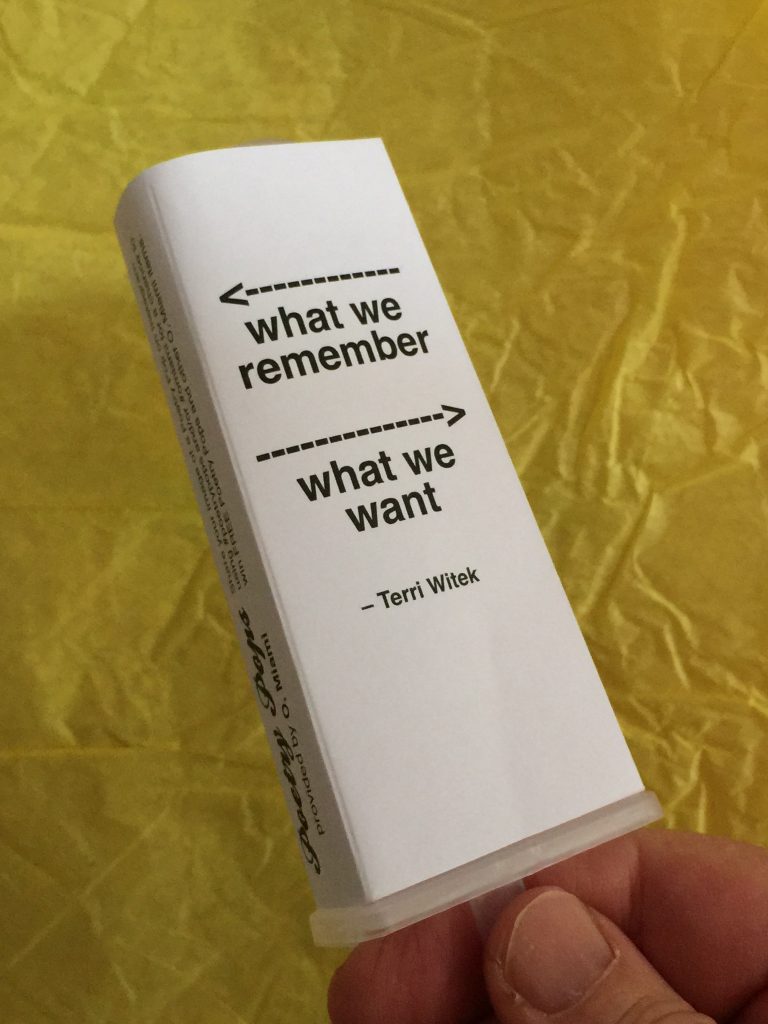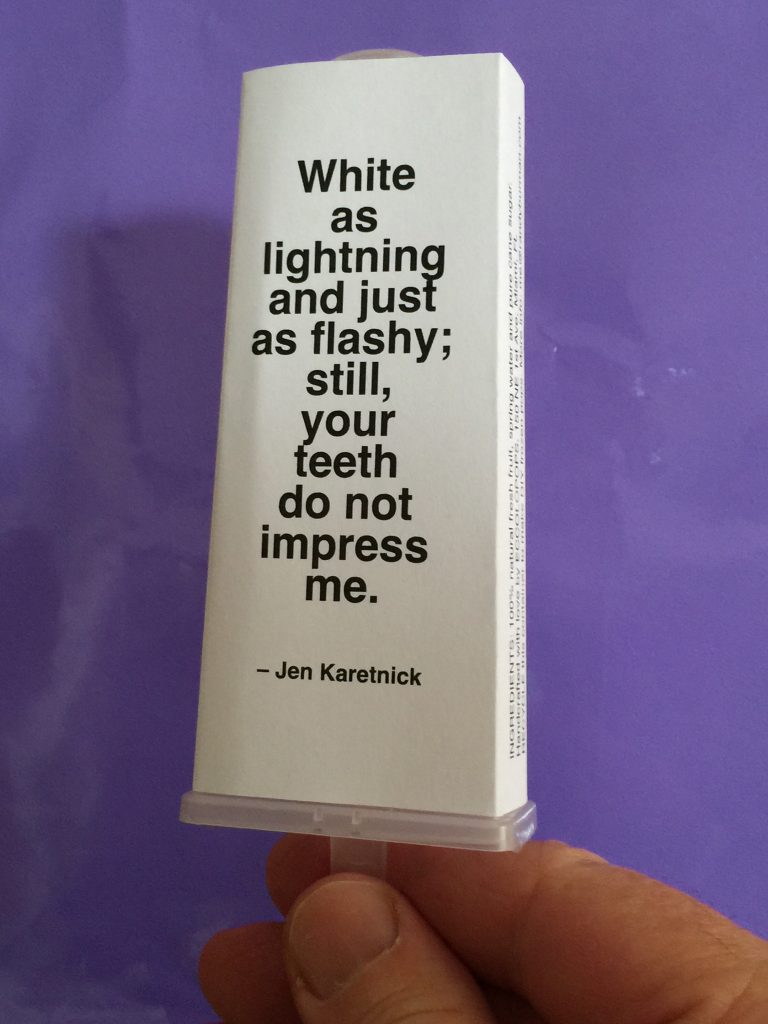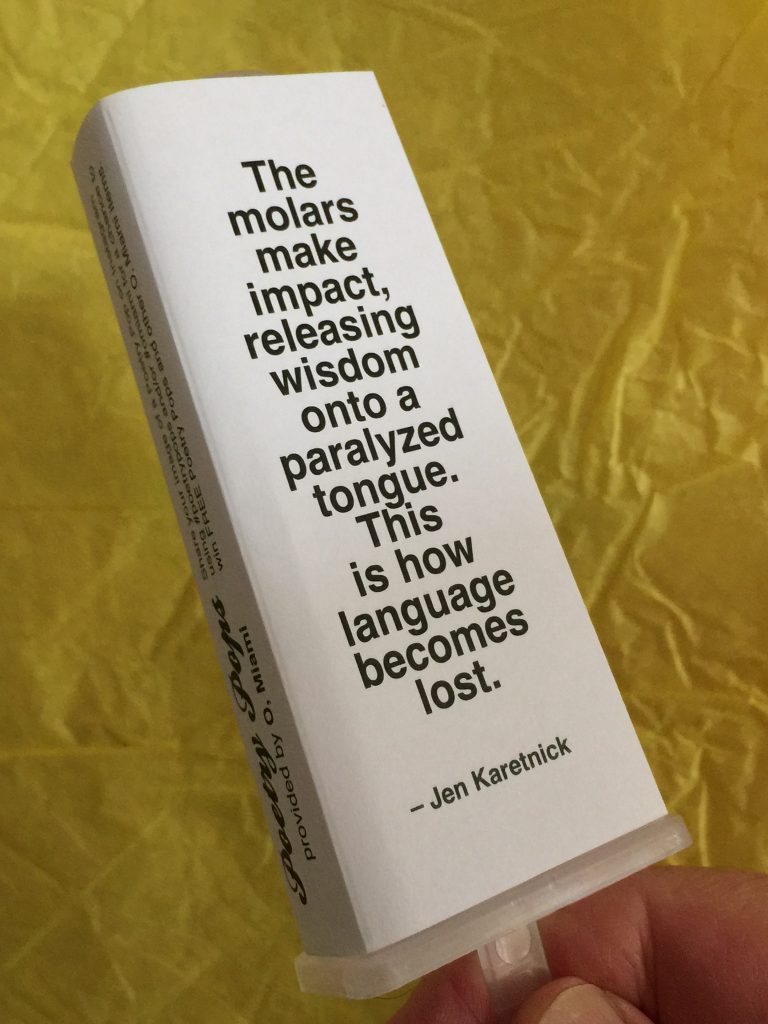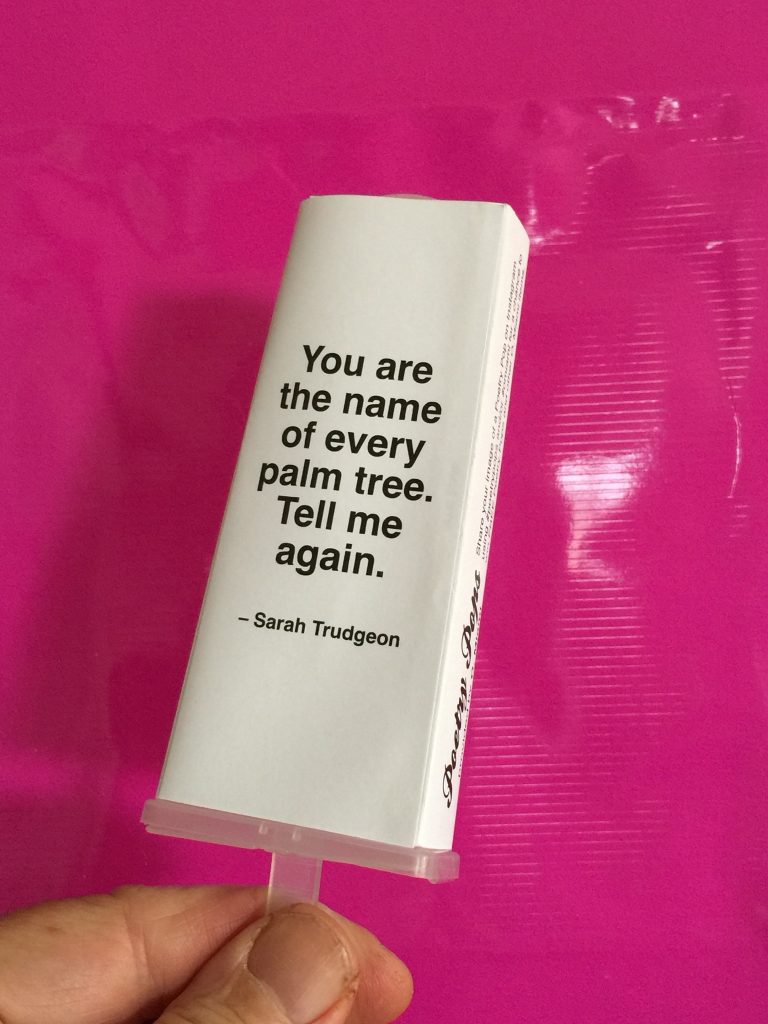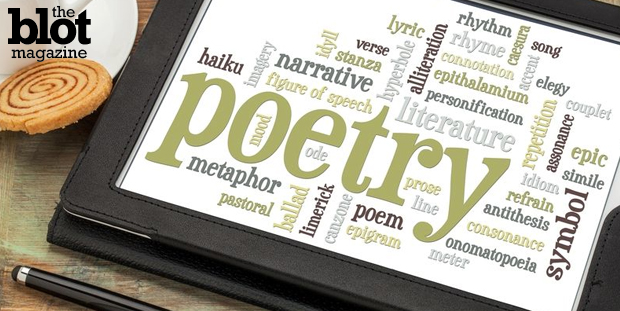
April is National Poetry Month, and since the Academy of American Poets invented it as a promotion akin to Black History Month in February and Women’s History Month in March back in 1996, it’s been a veritable bonanza of verse for the literati. Booksellers, librarians, teachers, students, erudite citizens — and, obviously, poets — immediately got on board to help revive the art that Joseph Roux calls “the truth in its Sunday clothes.”
Like other celebrations that have taken on lives of their own, it’s fairly clear what poets and those with related professions get out of it: renewed exposure to what some people call a dead or dying art through readings, events, festivals and other celebrations. But what do those of us who aren’t academically minded get? The last time most of us read a poem was likely in high school, and it’s probably because it was required.
But even for admitted philistines, there are benefits. Here are 10 real-life reasons why real-life people should care.
1. Ice Pops
O, Miami, a month-long poetry festival invented by poet-preneur P. Scott Cunningham in 2009, brings poetry to the people in various forms — literally and metaphorically. This year, Cunningham and crew, which include artist Randy Burman, Italian popsicle and gelato shop Eccolo Pops and performer Randy García, acting as ice cream man “Shel Shiverstein,” are handing out strawberry and mango “Poetry Popsicles,” which are printed with lines from local poets on the wrappers. Shiverstein appears all over town at venues ranging from cultural institutions to Miami International Airport.
See Burman’s photos of some of the poetic popsicle wrappers below:
2. Crossword Answers
Sure, you know a nine-letter word for “famous.” It’s — wait for it — legendary. But unless you’re a student of prosody, you may forever puzzle over the poet whose letters are embedded in stainless steel on Drottninggatan Street in Stockholm. (OK, it’s Johan August Strindberg. But we’re only telling you because it’s National Poetry Month.)
3. Gratitude
Mary Gannon, associate director for the Academy of American Poets, notes that absorbing the organization’s Poem-a-Day e-mails “requires us to slow down, to take time to pause. As poet Naomi Shihab Nye has said, ‘When you live in a rapidly moving swirl, you can only view your surroundings with a glance.’” Reading poetry teaches us to appreciate the little things.
4. Impressive Social Media App Comebacks
After you swipe right, you may have visions of an Elizabeth Barrett Browning “I love thee” future. Then the date happens, and you might find yourself with a need for something a bit angrier. This is where knowledge of a little Sylvia Plath wouldn’t hurt: “Out of the ash/I rise with my red hair/And I eat men like air.”
5. That Go-To Feel-Good Feeling
A study published in the Journal of Consciousness Issues reports that areas of the brain that respond to music, going so far as to stimulate dopamine release, also react the same way to poetry. By using functional magnetic resonance imaging (fMRI) scans, the researchers found that emotional response of subjects “share ground.” In other words, you cognitively know the difference between Taylor Swift, Nicki Minaj and Beyonce. But chemically, to regions of your brain’s right hemisphere, it all registers as Maya Angelou. Now you know why the caged bird really sings.
6. Full Pockets
Some of us keep our keys in our pockets. Others jingle loose change in there. Occasionally, when we’re not looking at them, our smartphones might wind up in one. But most of the time, the only things in our pockets these days are our hands. On April 30, though, you can have a poem in your pocket, especially in you live in Charlottesville, Va., where the staff and volunteers of the Jefferson-Madison Regional Library will hand out more than 7,000 poems to passersby and visitors along the popular pedestrian mall.
Rolled into scrolls, poems are also delivered to local schools, hospitals, nursing homes, senior citizen centers and various downtown business centers. Another Academy of American Poets initiative, National Poem in Your Pocket Day, which varies by date but always takes place in April, is one way to ensure that Americans have verse in their reach at least once per year.
7. Memory
According to neuroscientists, physicians and nurses working with patients suffering from dementia, poetry has emerged as a positive intervention, a useful tool in sparking buried or damaged memories. Reading and writing it also strengthens our memory skills in general and may serve as a preventative measure. Hear that, Alzheimer’s? Poetry is a weapon, and it’s aimed right at you.
8. Self-reflection
Whether it’s used intentionally “for healing and personal growth,” as PoeticMedicine.org defines it or it’s a beneficial side effect, reading poetry grants us insight — into ourselves, the action of others, the world around us. The National Association for Poetry Therapy was incorporated in 1981, and if you’re a literary sort of person who is looking to develop self-esteem or coping functions, hiring a poetry therapist to help you get there is a valid option. Or just buying a book of verse now and then, written by a really smart poet, may work, too.
9. Empathy
More studies — this time from both the University of Liverpool and the University of Buffalo — indicate that those who read poetry link themselves personally to the poems. Brain scans from the first showed autobiographical memories responded to particular pieces, and the second suggested that readers put themselves in the place of the poets’ protagonists, thereby sharing their experiences as they would if they were watching an effective movie.
About the art in general, inaugural poet Richard Blanco says, “In our hectic, multi-tasking world full of distractions, we so often forget to feel. [Reading poetry] gives us a quiet, powerful moment to feel and connect with our deeper selves. It’s a grain of sand that cultivates a pearl of understanding.” The outcome? Maybe poetry can make the world a more peaceable place. Or perhaps it can simply spark a new appreciation for chick flicks. Still, it’s a win-win.
10. Coffee
Now that you know about National Poetry Month, you’re ready for World Poetry Day. During its 30th session, held in Paris in 1999, UNESCO, the United Nations Educational, Scientific and Cultural Organization, proclaimed the day to be March 21. “Every poem is unique but each reflects the universal in human experience, the aspiration for creativity that crosses all boundaries and borders, of time as well as space, in the constant affirmation of humanity as a single family,” Irina Bokova, director-general of UNESCO, wrote about World Poetry Day.
This year, according to The Guardian, to promote World Poetry Day, Julius Meinl Coffee, a Vienna-based company, turned to another universal language to communicate: caffeine. In 1,100 establishments that spanned 23 countries, the company offered a cup in exchange for an original poem. So keep an eye on March 21 next year, not to mention the rest of April this year. Because if you’re handy with a haiku, you can actually fuel up in Budapest, thanks to the Third Annual Poetry Month #Haiku Challenge. Co-sponsored by the Library Hotel and the Aria Hotel Budapest, the competition provides stays in both hotels for just three well-chosen lines, tweeted to @LibraryHotel and @AriaBudapest (be sure to include #haiku), that best exemplify the establishments’ message: the joie de vivre that the arts can provide us.
Jen Karetnick is a contributing journalist for TheBlot Magazine.




